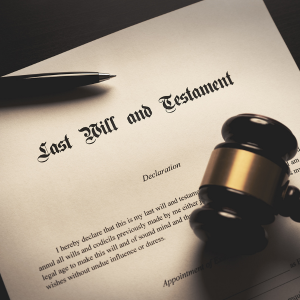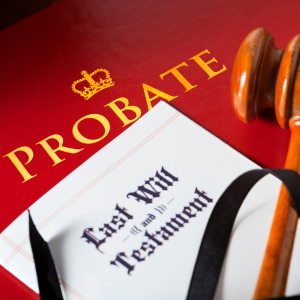Understanding the Probate Process in Maui, Hawaii
Any person in estate-related dealings or estate planning in Maui, Hawaii, must understand the probate process. Probate is a procedure in the law designated for the assets of a deceased person. In this procedure, the assets are evaluated, the obligations or debts are cleared, and any remaining assets are given out according to the will or state law, which considers the will nonexistent in the absence of a will.
Hawaii has its unique set of laws, and the value of real estate turns the probate process into more than just a simple task. The probate process has several steps; for instance, you would have to file a petition with the Hawaiian courts, notify any heirs and creditors, and then name a personal representative who will have the authority to manage the estate.
Like the rest of Hawaii, it is essential to know the relevant property laws that govern ownership and succession, and how they affect the transfer of property in Maui.
Also, knowing how joint tenancy and tenancy by the entirety impact probate proceedings is vital for estate planners of estates with physical assets. An estate’s property involved in probate court can add complexity to the process, so talking to an attorney specializing in Maui’s real estate laws would be helpful.
Oahu Home Buyers offers a simple solution for families navigating probate in Maui—we provide fair cash offers for inherited properties, handle the details, and ensure a smooth, hassle-free sale during what can often be stressful.
Key Steps to Navigating Probate Court in Hawaii
Dealing with probate court in Hawaii, especially when it concerns real estate in Maui, involves several steps that are tied to the law and need to be closely followed. Knowing the probate process helps greatly in dealing with the property and managing it after the death of a loved one.
At some point in the process, filing a petition with the proper probate court, along with some documents that will allow movement towards designating an executor or a successor who would take on the role of a personal representative and would be able to manage the estate, would be necessary. Compiling the required documentation, such as a will, if it is there, along with the deceased’s asset and liability statements, adds value.
In Hawaii, the real estate is often the most valuable part of an estate. Therefore, proper appraisals and valuations are needed to distribute the asset’s value among heirs or beneficiaries. Executors must deal with outstanding debts or taxes the estate owes before asset distribution in accordance with the will, or state intestacy laws if no will exists.
Throughout this process, knowing Hawaii’s laws on spousal rights and family exemptions will affect how the estate is divided. After all, given the unique properties of the housing market in Maui, it may also be helpful to talk to lawyers who practice Maui’s probate law to address probative issues and to be in compliance with all statutory requirements.
Essential Legal Documents for Probate in Maui
When dealing with Maui probate and real estate matters, it’s crucial to understand the legal documents required to navigate Hawaii’s housing laws effectively. The probate process typically begins with the last will, a critical document that outlines how a deceased person’s assets should be distributed.
Without a will, the estate is deemed intestate and will be distributed according to Hawaii’s intestacy laws. Another essential document is the Petition for Probate, which starts the court process for confirming the will and appointing an executor or a personal representative.
After the appointment, the personal representative will administer the deceased’s estate, which necessitates Letters Testamentary or Letters of Administration to prove authority to act on behalf of the estate. The representative must also file an Inventory and Appraisement, which entails a complete listing of all the estate’s assets, including real estate in Maui.
According to Hawaiian laws about K probate sale listings, a Notice of Sale might be necessary. Having a complete grasp of such documents helps ensure that procedures regarding Maui’s real estate market are appropriately followed, enabling smoother transactions during probate dealings.
Timeline of the Probate Process in Hawaii
The probate process in Hawaii, especially concerning Maui real estate, has components that can be time-consuming during the estate settlement process. To start, any estate settlement in Maui has the probate court in Hawaii, where the will is submitted, and an estate administrator is appointed without a will.
In the process, all heirs and creditors must be notified per Hawaii’s probate laws. After notifications, all assets, including real estate on Maui, must be listed and appraised. This is critical in assessing the estate value, considering the debts or taxes accruing.
The court then reviews this inventory and any claims from creditors before deciding asset distribution. Sometimes, selling real estate may be necessary to pay off liabilities or distribute proceeds among beneficiaries according to the decedent’s wishes or state intestacy laws. In such cases, working with investor house buyers in Maui and surrounding cities in Hawaii can help simplify the process and provide faster solutions for selling estate properties.
The Maui probate case and the real estate deals connected to it can take anywhere from a few months to over a year to expertly wrap up. Knowing these periods assists the executors and the heirs in maneuvering Hawaii’s housing regulations in probate matters.
Common Challenges in Maui’s Probate Proceedings
Probate proceedings in Maui involve many issues that make real estate dealings within the context of the Island’s housing regulations quite difficult. One common problem is the relatively complicated steps involved with proving a will. If the will is not authenticated per the steps provided by the state, the distribution of property will be stopped.
In addition to the issues stated above, conflicts between heirs or beneficiaries are common and further lead to the stagnation of the probate process. Combining native Hawaiian property concepts with real estate titles creates a peculiar problem that is absent in other parts of the United States. This makes probate cases more difficult because determining the ownership is not straightforward.
In addition, Malibu Real Estate’s great importance in Maui drives up the value even more, attracting more scrutiny from competitors, potential heirs, and buyers. Furthermore, the executors must deal with the specific tax implications and set deadlines in Hawaii, which require much attention to avoid mistakes that could lead to further penalties and undone work.
These hurdles make dealing with sophisticated local practices more burdensome and require specialized assistance to traverse Maui’s probate landscape.
Executor Duties and Responsibilities in Hawaiian Estates
In Hawaiian estates, especially in Maui, the executor’s function is essential in workflow management for probate and estate affairs. Executors control the deceased’s estate in compliance with Hawaii’s probate laws, which include gathering and inventorying the estate’s assets.
In addition, executors must make certain that all of Maui’s real property is included in the estate inventory. Executors need to make sure that there is compliance with all debts and taxes that are owed by the estate, per the stipulation under the Hawaiian law.
Managing real estate properties often requires appraising their value and possibly coordinating with local realtors or attorneys familiar with Maui’s housing market. In some cases, as heirs, you may sell your house fast in Waipahu and other cities in Hawaii through cash buyers or investor-friendly companies, which can simplify the probate process. Executors must communicate effectively with beneficiaries, informing them about the estate’s progress through probate proceedings.
Adhering to Hawaii’s rules on property transfers is critical for avoiding legal challenges. Executors are particularly essential in protecting a decedent’s intent by complying with legal frameworks in Hawaii surrounding probate and real estate handling by serving in their respective roles.
How to Avoid Probate in Hawaii: Tips and Strategies
Understanding housing regulations in areas like Maui can be quite challenging. Because of this, avoiding probate in Hawaii can significantly streamline the process of transferring real estate or other assets. This can be accomplished by using living trusts, which allow the transfer of assets without the probate process.
Properties can be put into a revocable living trust, which names a trustee to oversee the property on behalf of the beneficiaries. This allows for smooth succession after death. Another method is joint tenancy with the rights of survivorship. Upon the death of one of the owners, the share owned is automatically given to the surviving owner, thus avoiding probate.
Moreover, keeping beneficiary designations on financial accounts current can help avoid probate on those assets. Considering POD and TOD designations on bank accounts and securities is also helpful.
An estate planning attorney who understands Maui’s regulations will devise personalized strategies that help navigate Hawaii’s lengthy and often expensive probate processes.
How Long Does Probate Take in Hawaii?
The probate process in Hawaii, specifically in the Maui region, has several factors determining its duration. In most cases, it can take six months to a year and a half.
As with other areas, Maui has its own unique set of housing and real estate laws, which, in addition to local regulations, can affect the timeline for settling an estate and the local housing market. Further, aspects such as the thoroughness of documentation and the presence of creditor or beneficiary disputes can also impact the timeline.
If real estate is part of the estate, additional procedures like appraisals and title transfers may elongate the probate period. Hiring a skilled probate attorney in Hawaii ensures that all legal processes are completed within set timelines, which helps reduce the overall duration of the probate.
Probate processes often face delays, whether because of the availability of judges or unexpected litigation. Knowing how lengthy probate takes is extremely important for anyone dealing with Maui probate and real estate.
At What Point Does an Estate Have to Go Through Probate?
Knowing the specific scenarios when an estate must go through probate is vital for individuals managing real estate and housing matters in Maui. Probate is required when a person dies, for instance, owning certain assets, most notably real estate, solely in their name without a designated beneficiary or joint owner.
As is customary in other states, Hawaii also requires probate proceedings when a decedent’s estate includes real property exceeding a specific value set by law to effectuate the change of title and settle any outstanding debts. This is true for Maui real estate, where houses and land not held in trust or not held with rights of survivorship will need to be processed through probate court.
Navigating these requirements is essential for heirs and beneficiaries to gain a clear title to the property. Understanding how Hawaiian probate laws intersect with local real estate regulations is also necessary. Engaging with an experienced attorney familiar with both probate and Maui’s unique housing market can provide invaluable guidance during this process.
How to Avoid Probate in Hawaii?
Avoiding probate in Hawaii, especially when dealing with real estate in Maui, can be a strategic move to streamline the transfer of assets and reduce legal complexities. One effective method is establishing a living trust, which allows property owners to place their Maui real estate into the trust, designating beneficiaries who will automatically receive the assets upon the owner’s passing.
This bypasses the probate process entirely. Another approach is holding property in joint tenancy with rights of survivorship; this ensures that when one owner passes away, their share of the property automatically transfers to the surviving owner without going through probate.
Additionally, Transfer on Death (TOD) deeds can benefit Maui homeowners. These deeds allow property owners to name a beneficiary who will inherit the real estate upon death, avoiding probate proceedings.
It’s also important to regularly update beneficiary designations on retirement accounts and insurance policies to ensure they reflect current wishes and help prevent these assets from entering probate. By implementing these strategies tailored to Hawaii’s housing laws, individuals can efficiently manage their estates and minimize potential delays or disputes associated with probate in Maui.
Contact us today for a no-obligation offer—our team specializes in helping Maui property owners navigate probate and estate matters with simple, hassle-free solutions.
What Is the Inheritance Law in Hawaii?
Hawaii’s inheritance law is critical to understanding probate and real estate in Maui, especially when navigating the complexities of Hawaii’s housing laws. The inheritance process is governed by state statutes and traditional Hawaiian customs, making it unique compared to other states.
The probate process in Hawaii involves the legal distribution of a deceased person’s assets, including real estate properties in Maui. Understanding these laws is essential for heirs and beneficiaries to ensure a smooth transfer of property ownership.
Hawaii follows the Uniform Probate Code, which simplifies the probate process but requires careful attention to detail. In cases with no valid will, Hawaii’s intestate succession laws determine how assets are distributed among surviving family members.
Real estate holdings in Maui may require additional considerations due to local zoning regulations and land use restrictions. Therefore, having a comprehensive understanding of Hawaii’s inheritance law can help navigate potential challenges during probate proceedings involving real estate transactions on the islands.
Need to sell your house? Whether you want a quick sale, avoid costly repairs, or enjoy a hassle-free process, Oahu Home Buyers is here to help. We offer fair cash offers, handle every detail, and make the experience smooth from start to finish. Have questions or ready to get started? Call us at (808) 333-3677 today for a no-obligation cash offer.
| PROBATED | HAWAII COUNTY | DECEDENTS | MONEY | CASH | TAXING |
| HONOLULU COUNTY | HONOLULU | CASH ADVANCE | ESTATE TAX | INHERITANCE TAX | EXPENSES |
| PAYMENTS | ACCOUNTING | TAX RETURNS | MAUI COUNTY | LIFE INSURANCE | LAWSUITS |
| CIVIL LAWSUITS | JUDGE | INVESTMENTS | INSURANCE POLICY | INFORMATION | INCOME |
| FEES | DATA | AFFIDAVIT |
Helpful Maui, HI Blog Articles
- The Impact Of Unpaid HOA Dues On Maui, HI, Real Estate
- The Pros And Cons Of Selling Your Maui, HI, Home Below Appraisal Value
- Essential Documents For Selling Your Home In Maui, HI
- Navigating Home Sales In Maui, HI: FSBO Vs Realtor
- Who Pays For Appraisal And Inspection In Maui, HI
- Understanding Probate And Real Estate In Maui, HI
- Expert Tips For Selling Your House By Owner In Maui, HI
- How To Sell Your House With A HELOC In Maui, HI

![How are probate cases managed In [market_city]](https://image-cdn.carrot.com/uploads/sites/1287/2025/08/How-are-probate-cases-managed.png)



